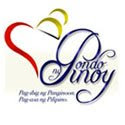“Five Loaves & Two Fish, Bridging the Gap Between Dives and Lazarus”
Fr. Ambo S. David
“Between us and you is a wide gap that prevents anyone from crossing who might wish to go from our side to yours or from your side to ours.” (Lk 16:26)
It doesn’t take much to imagine the wide gap that father Abraham speaks about. We just need to look at the great divide between the rich few and the poor majority in this country. The gap remains unbridgeable, so how can we even hope to gather the scraps that fall from the rich man’s table?
I hate to say this, but it is becoming clearer and clearer to me that the scraps from the rich man’s table are not the kind we would wish to gather for pondong pinoy. These are scraps from unbroken bread, which the rich man in the story never intended to share in the first place. Perhaps he was really saving them as bait for the hungry fishes that will also end up in the rich man’s table.
This narrative is every bit an indictment of the privileged few who think they have everything to gain by further widening the gap. The gap is like a mote surrounding a castle. It is a line of defense. Are not the very rich usually afraid of the poor? Are not their houses heavily guarded and reinforced by thick walls and iron grills? Must they wait until afterlife to discover that the wide gap that they reinforce is what will make it virtually impossible for God to get anybody to rescue them from fires of Gehenna? I can only shiver at this thought.
The crumbs from the rich man’s table are not for the dogs either. Even the poor dogs in the story are so hungry, we are told, they lick the sores of Lazarus.We have no need of the crumbs of selfishness and insensitivity. We must move on therefore, to a better—less scary—theology of crumbs based on a more hopeful narrative, the miracle of the five loaves and two fish. (Mark
Before the huge size of the crowd, the disciples regarded their five loaves and two fish as mere crumbs. No wonder they suggested to “dismiss the crowd…so they could buy themselves something to eat.” (Mk 6:36) Isn’t that what we all tend to do when we get overwhelmed by the magnitude of the socio-economic problems of our country? When huge numbers of poor people come to our Churches asking for financial help, for food, medicine, shelter, justice, etc? We look at our meager resources and—like the disciples—are tempted to say, “We have nothing but five loaves and two fish.” (Matt. 14:17) John’s version of this story further adds, “What good are these for so many?” (Jn 6:9b)
This is the scarcity mentality that Jesus had to heal first in his disciples before he could introduce them to a better theology of the crumbs. We dismiss the crowd because we feel we have nothing. But five loaves and two fish isn’t “nothing”, is it? It may seem insufficient, but it still is something. Jesus’ miracle begins with an invitation never to regard as nothing what is something because it is not much. Thus his response to a self-depreciating “we have nothing but…” is “Bring them here to me.” (Matt
We cannot anymore go on dismissing the crowd if we are to claim to be part of Jesus’ kingdom project. Remember James who, in his letter, warned those who boasted of faith without action, those who were quick at dismissing the crowd saying “Go in peace, keep warm and eat well.” (James 2:16) Are we not quite used to saying that ourselves? Don’t we find ourselves offering the poor our prayers and referring them to the PCSO or DSWD, which are also likely to dismiss them for the common reason of “lack of funds?”
The Eucharist is the opposite of dismissal. Jesus invites everyone to begin by giving thanks for whatever little we have, to treat it as something and not dismiss it as nothing, to dare to break and share it, if we want to experience the banquet of God’s kingdom where everyone will be satisfied and still have a lot of left-overs. Only then will he say, “Gather the fragments left over, so that nothing will be wasted.” (John 6:12)
The crumbs that we speak of here are worlds apart from the crumbs that fall from the rich man’s table in the Lazarus story. They are the crumbs that we intend to collect—scraps, fragments of left-over from bread that is broken, from food that is given and meant to be consumed, from meager resources that are generously shared. We call them the crumbs of the
It is these “fragments of left-over” that Jesus commands us to gather. They are the humble “barya” (small change) that jingle in our pockets after we have broken our hard-earned thousand-peso, 500-peso, 100-peso, or even 50-peso bills… to bring a sibling to school, to buy medicine for a sick parent, to pay rent for a house that shelters a poor family, or to get get a little present for someone we love.
It is the people who already break their bread all the time who will have scraps to spare, left-overs to be gathered for yet another miracle. And as regards those whose bread remains unbroken, and who gloat over the gap that makes them feel secure in their secluded and exclusive paradise, I have nothing but a word of advice: Do yourselves a favor… Break your bread… Share your crumbs and …bridge the gap while you still can. You may not know that by allowing Lazarus to cross over the great divide, you are also making your own salvation from the misery of hell… still possible.
Fr. Ambo S. David




No comments:
Post a Comment